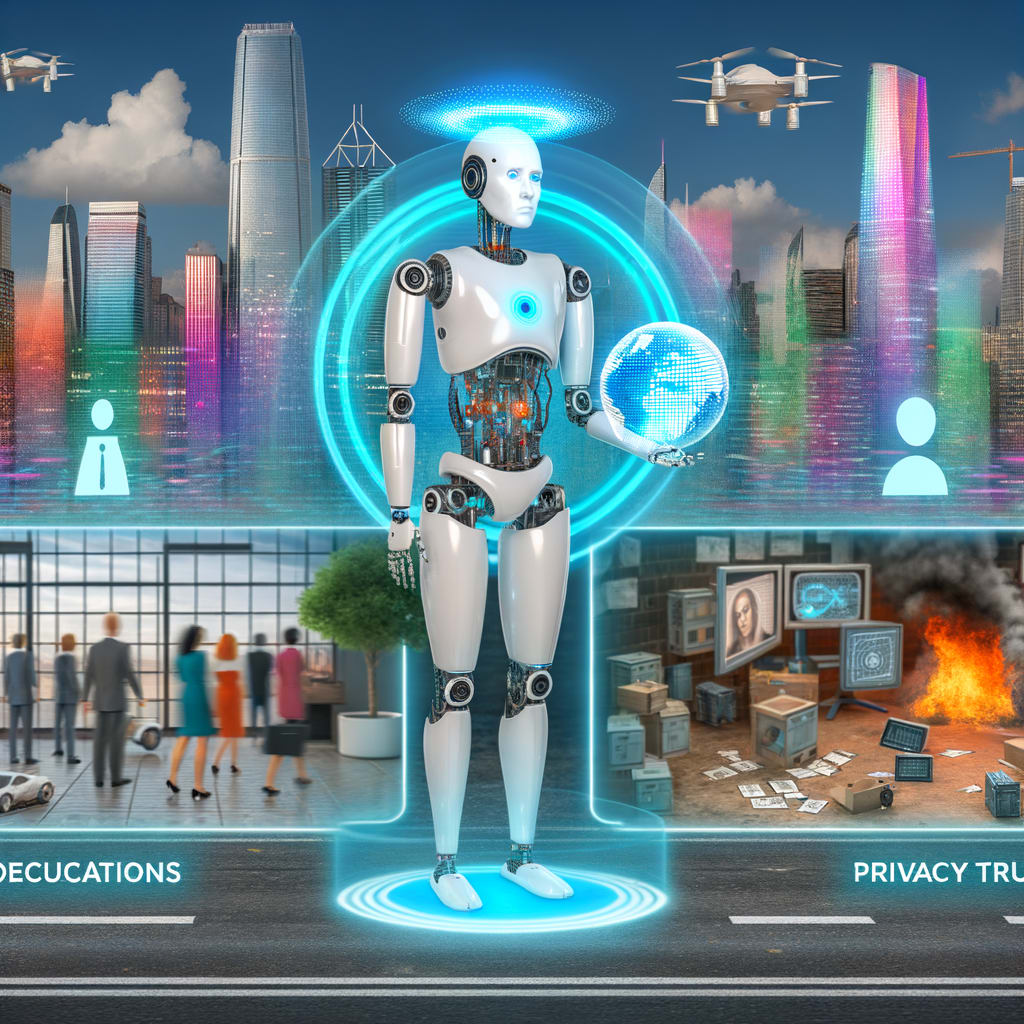The Global AI Revolution: Impacts, Concerns, and Emerging Trends
Artificial Intelligence (AI) is rapidly emerging as a clear trend in the global economy, with implications for labor markets, journalism, politics, and more. However, as AI continues to integrate into various aspects of daily life, it also brings about concerns regarding job displacement, public trust, and regulation.
The AI Boom and Its Impact on Labor Markets
According to the Folha de S.Paulo, the most likely scenario of the AI revolution is a labor shortage, especially a lack of qualified workers capable of maximizing this new technology. This sentiment is echoed by Le Monde, which notes that the first impacts of AI on work are becoming tangible in creative or intellectual professions. Fox News reports mixed views among voters about the impact of AI on career prospects, with 43% considering it beneficial for long-term career goals and 48% viewing it as a potential threat.
AI's Role in Journalism and Politics
In the journalism sector, CBC News is launching a new campaign aimed at using AI responsibly to benefit journalism and avoid potential pitfalls that may erode public trust. On the political front, The New York Times reports that as AI companies prepare to pump money into elections, plans are being hatched to curb the industry's influence. Fox News highlights that President Donald Trump has called for federal AI standards to end the ‘patchwork’ of state regulations, fearing they may threaten economic growth.
Emerging AI Trends and Innovations
AI is not only reshaping labor markets or journalism but also driving significant technological innovations. China's tech giant Alibaba's multipurpose AI app, Qwen, recorded over 10 million downloads in its first week, as reported by the South China Morning Post. Meanwhile, Lenovo is betting on its own AI agent to grow its AI-powered consumer electronics business amid a global memory chip supply crunch.
Folha de S.Paulo also notes that Nvidia has registered strong growth with robust sales of AI chips, indicating a continued surge in tech company spending on AI. At the same time, Google's new AI model, Gemini 3 Pro, has put China's AI start-ups on the defensive, showing the competitive nature of the AI industry.
Global AI Leadership and Future Implications
With the AI revolution defining economies, both the U.S. and China are vying for global leadership in AI innovation. Fox News suggests that the AI boom promises to propel the first country to achieve AI dominance to a higher quality of life. Meanwhile, The Guardian reports that a massive solar farm proposed by SunCable in the Northern Territory could power an AI data center precinct to position Australia as a global leader in green industrial development.
However, as AI becomes more integrated into daily life, concerns about privacy are also growing. Fox News shares how Google's AI can now use context from Gmail, Drive, and Chat, raising concerns about AI scanning private messages or personal documents.
In conclusion, as AI continues to revolutionize various sectors globally, balancing its benefits with the associated risks and concerns will be key to navigating the AI revolution responsibly and effectively.

